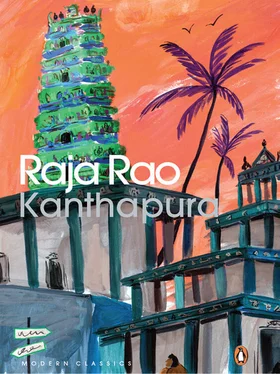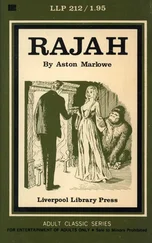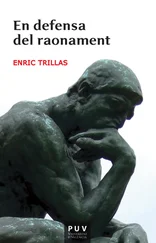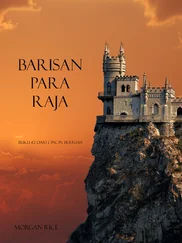Raja Rao - Kanthapura
Здесь есть возможность читать онлайн «Raja Rao - Kanthapura» весь текст электронной книги совершенно бесплатно (целиком полную версию без сокращений). В некоторых случаях можно слушать аудио, скачать через торрент в формате fb2 и присутствует краткое содержание. Год выпуска: 2014, Издательство: Penguin, Жанр: Классическая проза, на английском языке. Описание произведения, (предисловие) а так же отзывы посетителей доступны на портале библиотеки ЛибКат.
- Название:Kanthapura
- Автор:
- Издательство:Penguin
- Жанр:
- Год:2014
- ISBN:нет данных
- Рейтинг книги:3 / 5. Голосов: 1
-
Избранное:Добавить в избранное
- Отзывы:
-
Ваша оценка:
- 60
- 1
- 2
- 3
- 4
- 5
Kanthapura: краткое содержание, описание и аннотация
Предлагаем к чтению аннотацию, описание, краткое содержание или предисловие (зависит от того, что написал сам автор книги «Kanthapura»). Если вы не нашли необходимую информацию о книге — напишите в комментариях, мы постараемся отыскать её.
Kanthapura — читать онлайн бесплатно полную книгу (весь текст) целиком
Ниже представлен текст книги, разбитый по страницам. Система сохранения места последней прочитанной страницы, позволяет с удобством читать онлайн бесплатно книгу «Kanthapura», без необходимости каждый раз заново искать на чём Вы остановились. Поставьте закладку, и сможете в любой момент перейти на страницу, на которой закончили чтение.
Интервал:
Закладка:
‘You will not cross this gate.’
‘I shall!’
Meanwhile Vasudev has arrived, and behind him Gangadhar and the men and the women, and from behind the bamboo cluster the maistri too, and the butlers from the bungalow, and then there is such a battle of oaths: ‘son of concubine’. ‘son of a widow’. ‘I’ll sleep with your wife’. ‘you donkey’s husband’. ‘you ass’. ‘you pig’. ‘you devil’. and such a shower of spittle and shoes, and ‘Brother, stop there’. ‘No, not till I’ve poured my shoe-water through his throat’. ‘No, no, calm yourself. ‘Oh, you bearded monkey’. ‘Oh, you Pariah-log,’ and as Moorthy forces himself up, Badè Khan swings round and — bang! — his lathi has hit Moorthy and his hands are on Moorthy’s tuft, and Rachanna and Madanna cry out, ‘At him!’ and they all fall on Badè Khan and tearing away the lathi, bang it on his head. And the maistri comes to pull them off and whips them, and the women fall on the maistri and tear his hair, while Moorthy cries out, ‘No beatings, sisters. No beatings, in the name of the Mahatma.’ But the women are fierce and they will tear the beard from Badè Khan’s face. Gangadhar and Vasudev go up to the pillars of the gate and cry, ‘Calm! Calm!’ Badè Khan, spitting and kicking, says he will have every one of them arrested, and as the maistri whips the coolies up the Estate path, Vasudev leads Moorthy away down to Kanthapura and spends the night there.
The next morning the maistri is there at Rachanna’s door: ‘You will clear out of here, instantly!’ and Rachanna’s old wife falls at the feet of the maistri and begs him to let them stay on, and she falls again at his feet and wriggles before him, but Rachanna drags her away and tells her to pack the baskets and bundles, and turns to the mastri and says, ‘You owe me seventy-six rupees in cash,’ and the maistri laughs and answers, ‘You have the tongue to ask that too?’ and Rachanna says he will not leave his hut till he’s paid, and at this the maistri goes away and comes back with Badè Khan and the butlers, and with the whip on his back and kicks on the buttocks, they drive him and his wife and his two orphaned grandchildren to the gate and throw their clay pots after them. Neither Puttamma nor Papamma nor old Siddayya, who were working by the bamboo cluster, turn towards Rachanna. ‘Thoo! Thoo! Thoo!’ spits Rachanna, looking towards them, and with his grumbling wife behind him and the little ones in his arms, he goes down the path over the Devil’s ravine bridge and by the Parvati-well and beneath the Buxom pipal tree, and turning by the Kenchamma grove, they all fall flat in prostration before the goddess and say, ‘Goddess Kenchamma, oh, do not leave us to eat dust!’ Then they rise up and tramp up the Ghat road to Kanthapura. They go to Moorthy and Moorthy takes them to Patel Rangè Gowda, and Rangè Gowda says, ‘We’ll show our mountain tricks to the bearded goat, and he goes to Beadle Timmayya and says, ‘Give him shelter and water and fire, Timmayya!’ and Timmayya gives him a place in the backyard, and as Rachanna builds his hut, the woman goes with the other women to pound rice, and that is how Rachanna came to live with us. And as everybody saw, from that time Moorthy grew more sorrowful and calm, and it was then, too, that he began his ‘Don’t-touch-the-Government’ campaign.
7
And this is how it all began. That evening Moorthy speaks to Rangamma on the veranda and tells her he will fast for three days in the temple, and Rangamma says, ‘What for, Moorthy?’ and Moorthy says that much violence had been done because of him, and that were he full of the radiance of ahimsa such things should never have happened, but Rangamma says, ‘That was not your fault, Moorthy!’ to which he replies, ‘The fault of others, Rangamma, is the fruit of one’s own disharmony,’ and silently he walks down the steps, and walks up to the temple, where, seated beside the central pillar of the mandap, he begins to meditate. And when the evening meal is over Rangamma comes to find our Seenu, and lantern in hand and with a few bananas in her sari-fringe, she goes to the temple, and Moorthy, when he sees the light, smiles and asks what it is all about. Rangamma simply places the bananas before him and stands waiting for a word from him. Moorthy lifts up the bananas and says, ‘I will drink but three cups of salted water each day, and that I shall procure myself. I shall go to the river and get water, and tomorrow if you can get me a handful ot salt, that is all I ask.’
At this Rangamma lets fall a tear, and Seenu, who has been silent and has been looking away towards the sanctum and the idols and the candelabras and the flowers, turns towards Moorthy and says ‘No, Moorthy, this is all very well for the Mahatma but not for us poor creatures,’ to which Moorthy answers calmly, ‘Never mind — let me try. I will not die of it, will I?’ And Rangamma says this and Seenu says that, and there is no end to the song. Then Ramakrishnayya himself comes to take Rangamma away and he says, ‘Let the boy do what he likes, Ranga. If he wants to rise lovingly to God and burn the dross of the flesh through vows, it is not for us sinners to say “Nay, nay,”’ and after a hurried circumambulation of the temple, they go down the promontory and hurry back home.
Moorthy said his gayatri thrice a thousand and eight times, and when the sanctum lights began to flicker he spread out his upper cloth on the floor and laid himself down. Sleep slowly came over him, and so deep was his rest that people were already moving about in the streets when he awoke. He rose quickly and hurried down to the river and hurried back again and, seated by the central pillar, began once more to meditate. People came and people went; they banged the bell and touched the bull and took the flowers, and still did Moorthy enter deeper and deeper into meditation; and it was only Waterfall Venkamma who roused him with her loud laughter: ‘Ah, the cat has begun to take to asceticism,’ says she, ‘only to commit more sins. He, son! when did you begin to lie to your neighbours? As though it were not enough to have polluted our village with your Pariahs! Now you want to pollute us with your gilded purity! Wait! Wait! When you come out of this counting of beads, I shall give you a fine welcome with my broomstick!’ But as Moorthy does not move, she puts her hand into her clothes-basket, and taking out a wet roll of sari, she holds it over his head and squeezes it. ‘This is an oblation to thee, Pariah!’ says she, and as she sees Rangamma’s sister, Seethamma, drawing near, she laughs at Moorthy and laughs again, and then she jabbers and shouts and goes away, still chattering to herself. Moorthy loosens his limbs and, holding his breath, says to himself, ‘I shall love even my enemies. The Mahatma says he would love even our enemies,’ and closing his eyes, tighter, he slips back into the foldless sheath of the soul, and sends out rays of love to the east, rays of love to the west, rays of love to the north, rays of love to the south, and love to the earth below and to the sky above, and he feels such exaltation creeping into his limbs and head that his heart begins to beat out a song, and the song of Kabir comes into his mind:
The road to the City of Love is hard, brother,
It’s hard,
Take care, take care, as you walk along it.
Singing this his exaltation grows and grows, and tears come to his eyes. And when he opens them to look round, a great blue radiance seems to fill the whole earth, and, dazzled, he rises up and falls prostrate before the god, chanting Sankara’s ‘Sivoham, Sivoham. I am Siva. I am Siva. Siva am I.’
Then he sat himself down by the central pillar and slipped back into meditation. Why was it he could meditate so deeply? Thoughts seemed to ebb away to the darkened shores and leave the illumined consciousness to rise up into the back of the brain, he had explained to Seenu. Light seemed to rise from the far horizon, converge and creep over hills and fields and trees, and rising up the promontory, infuse itself through his very toes and fingertips and rise to the sun-centre of his heart. There was a vital softness about it he had hardly ever felt. Once, however, in childhood he had felt that vital softness — once, as he was seated by the river, while his mother was washing the clothes, and the soft leap of the waters over smooth boulders so lulled him to quiet that he closed his eyes, and his closed eyes led him to say his prayers, and he remembered the child Prahlada who had said Hari was everywhere, and he said to himself, ‘I shall see Hari, too,’ and he had held his breath hushed, and the beating of the clothes sank into his ears, and the sunshine sank away into his mind, and his limbs sank down into the earth, and then there was a dark burning light in the heart of the sanctum, and many men with beards and besmeared with holy ashes stood beside the idol, silent, their lips gently moving, and he, too, entered the temple like a sparrow, and he sat on a handle of the candelabra, and as he looked fearfully at the holy, floods suddenly swept in from all the doorways of the temple, beating, whirling floods, dark and bright, and he quietly sank into them and floated away like child Krishna on the pipal leaf. But it was so bright everywhere that he opened his eyes and he felt so light and airy that his mother looked near and small like one at the foot of a hill. And up there over the mountains there was nothing but light and that cool, blue-spreading light had entered his limbs. And that very evening he said to his mother, ‘Mother, now you can throw me down the mountains,’ and she asked, ‘Why, my son?’ and he answered, ‘Why, mother, because Hari will fly down and hold me in his arms as I roll down the mountains. And if you send elephants to kill me, the elephants will stand by and say, “This is Hari’s child,” and lift me up with their trunks and seat me on their backs and throw a garland round my neck. And the poison you will give me in the cup of death will become the water of flowers, for, Mother, I have seen Hari. ’
Читать дальшеИнтервал:
Закладка:
Похожие книги на «Kanthapura»
Представляем Вашему вниманию похожие книги на «Kanthapura» списком для выбора. Мы отобрали схожую по названию и смыслу литературу в надежде предоставить читателям больше вариантов отыскать новые, интересные, ещё непрочитанные произведения.
Обсуждение, отзывы о книге «Kanthapura» и просто собственные мнения читателей. Оставьте ваши комментарии, напишите, что Вы думаете о произведении, его смысле или главных героях. Укажите что конкретно понравилось, а что нет, и почему Вы так считаете.












